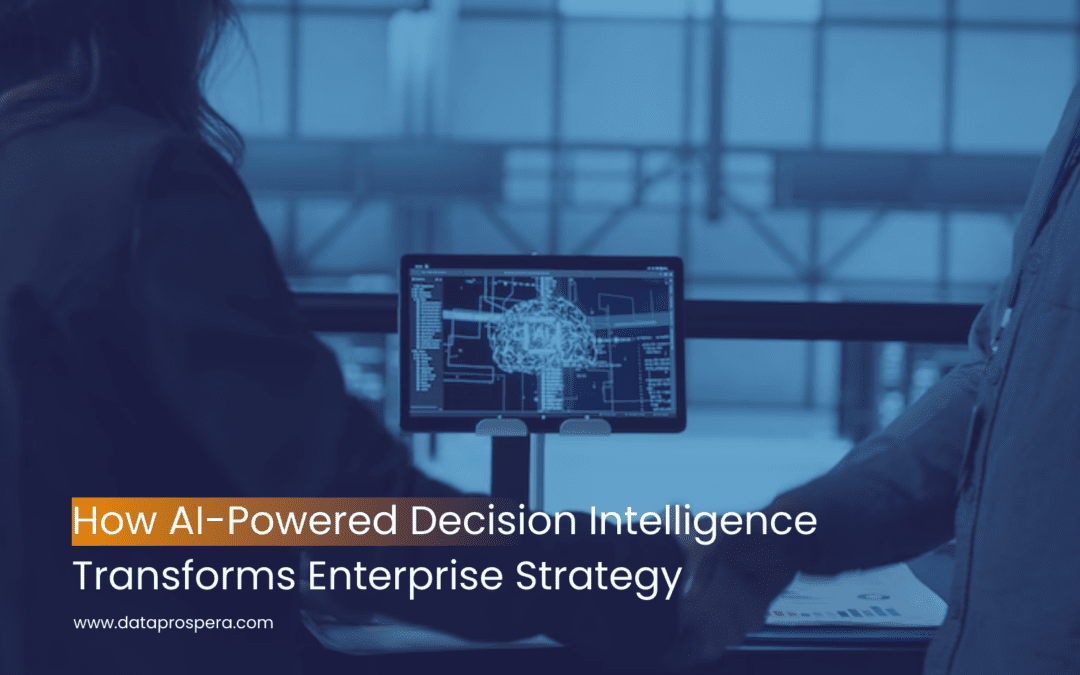In an age where businesses are navigating rapid technological change and unprecedented complexity, traditional decision-making approaches often fall short. That’s where AI-powered Decision Intelligence steps in—a transformative framework that integrates artificial intelligence, machine learning, and data analytics to help enterprises make smarter, faster, and more informed decisions.
What is Decision Intelligence?
Decision intelligence combines data science, AI models, and human judgment into a unified strategy for making decisions. It bridges the gap between raw data and actionable outcomes, offering context-aware, scenario-based, and continuously learning systems.
According to Gartner, decision intelligence will be used in over 33% of large organizations by 2025 to improve decision-making across business operations.
Why Enterprises Need AI Decision Intelligence
1. Accelerated Decision-Making
AI systems can process vast amounts of data in real-time, enabling leaders to make high-stakes decisions faster than ever before.
- Streamlines strategy development
- Reduces time spent on data interpretation
- Supports real-time reactions to market dynamics
2. Improved Accuracy and Predictability
AI leverages historical data, behavioral trends, and predictive modeling to enhance forecasting and risk assessment.
- Identifies hidden patterns and anomalies
- Enhances scenario planning
- Reduces bias in complex decisions
3. Holistic View of the Enterprise
Decision intelligence systems integrate data from sales, operations, finance, HR, and other departments, offering a 360-degree view of enterprise performance.
- Breaks down data silos
- Encourages cross-functional collaboration
- Provides unified dashboards for strategic planning
Real-World Applications
- Supply Chain Optimization: AI forecasts demand fluctuations and suggests adjustments to production and distribution.
- Financial Planning: Decision intelligence models guide investment, budgeting, and fraud detection.
- Customer Experience: AI helps predict customer needs, enabling personalized offers and reducing churn.
Check out our related blog on Predictive Analytics: The Game-Changer for Modern Enterprises.
Challenges to Consider
While powerful, AI-powered decision intelligence requires:
- High-quality data inputs
- Explainable AI models for transparency
- Human oversight to ensure ethical decision-making
Explore how transparency in AI is evolving in our article on The Rise of Explainable AI.
Future Outlook
As AI matures, decision intelligence will become central to strategic planning in every industry—from banking to healthcare and public governance. Businesses that embrace it early will gain a significant competitive edge through agility, resilience, and smarter risk management.
Conclusion
AI-powered decision intelligence is not just a tool; it’s a strategic framework that empowers enterprises to navigate uncertainty, innovate boldly, and act with confidence. By integrating real-time analytics, predictive models, and human insight, companies can reimagine what’s possible in enterprise strategy.


Recent Comments